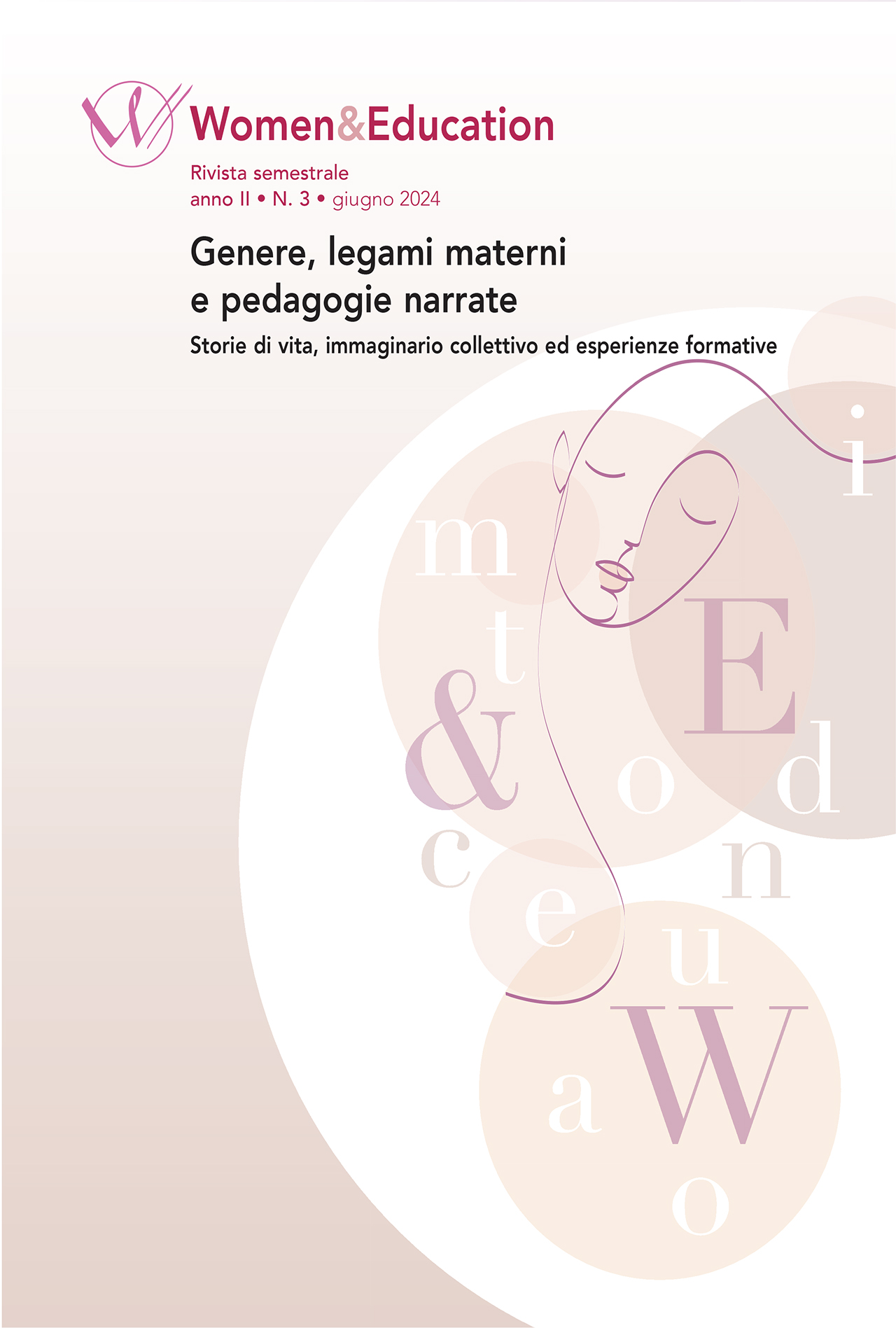Life at Plumfield. Raising little women and little men through Louisa May Alcott’s progressive American education
DOI:
https://doi.org/10.7346/-we-II-03-24_05Keywords:
Children's literature, Louisa May Alcott, gender, maternal bonds, women's emancipatioAbstract
Louisa May Alcott, American authoress of the novels centred on the lives of the four March sisters, rewrote her childhood experiences into Little Women, sweetening their bitterness for her young readers and perhaps also for herself. Marmee March, the beloved mother of the March girls, is a character literary construct of LMA's mother, Abba Alcott (Estes, Lant, 1989; Keyser, 1992).
While her father, Bronson Amos Alcott, constantly observed and intervened in the upbringing of his two eldest daughters, Marmee enjoys complete authority in the domestic sphere, encouraging her daughters to become the little women their father March wishes them to be. Marmee's omnipotent presence in Little Women reflects the cult of motherhood that was prevalent in mid-19th century America (Antonini, 1971; Eiselein, Phillips, Orlando, 2001). Mothers had the power, within the private sphere, to educate and mould the shapeless characters of their children.
Alcott's novels turn her family into an opportunity to redesign a new female universe (Trisciuzzi, 2018), which breaks out of the formal patterns of the time, inspired by freedom and respect: freedom to work, to independently choose a husband, to quit an authoritarian school, to experiment with one's own ideas. The paper will explore the theme of the female figure and the mother-daughter/mother-son relationship, both within the LMA novels and in the reality of the time. Both the life of women in the private sphere of the home – accompanied by women's domestic work, the upbringing of sons and daughters, marriage and motherhood – and the public sphere, outside the interiors (Beseghi, 1996) of the family home, will be analysed, presenting women's work as an autonomous and positive reality.
Downloads
Published
Issue
Section
License
Copyright (c) 2024 Women&Education

This work is licensed under a Creative Commons Attribution 4.0 International License.

